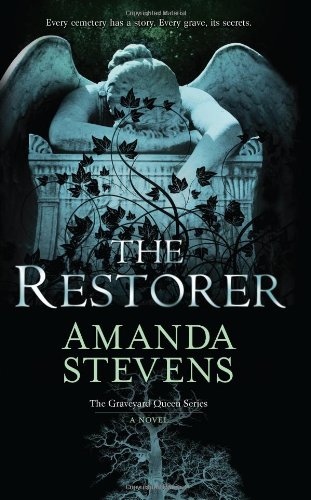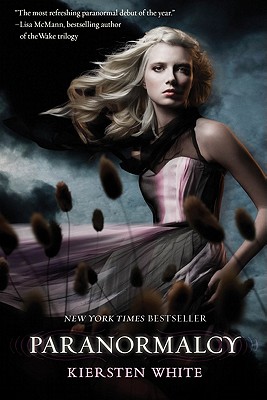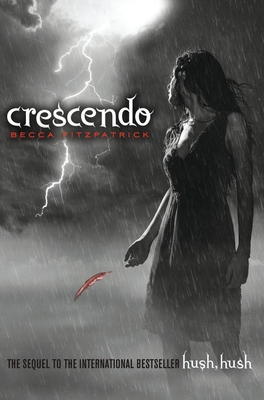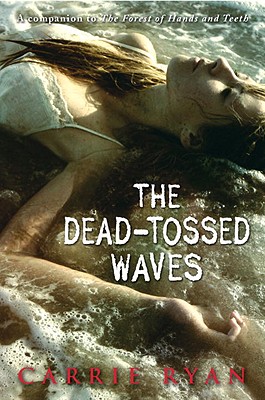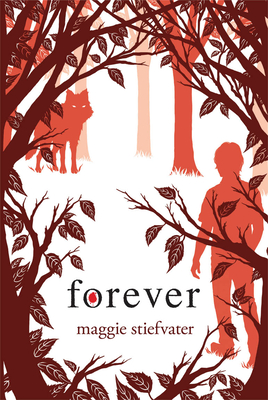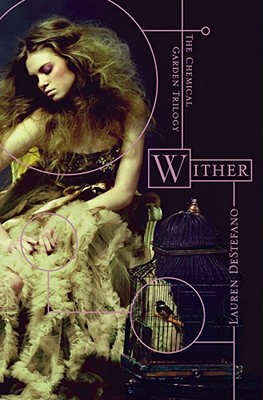★★★¾
The Restorer by Amanda Stevens
As I've mentioned before, I'm a sucker for a good ghost story, even when it scares the schnikeys out of me. The Restorer is one of those creepily good stories that goes for the perfect chilling factor.
Book one in the Graveyard Queen series (doesn't that just sound so awesome?) introduces us to Amelia Gray, a cemetery restorer who sees ghosts. These aren't Casper-friendly ghosts, either. These are scary, wet-the-bed nightmarish ghosts, so Amelia has held to her father's edict to never let ghosts know she can see them. She's done a good job—until now.
How could a ghost story get even better? Add in genteel Southerns entrenched in secret societies and sacrificial murders, plus a handsome potential love interest with a mysterious past, and you've got a realistically fright-worthy read.
While this book is published by Harlequin, it focuses more on the mystery than the romance, which I really appreciated in this story. I'm definitely looking forward to the sequel.
Thanks to the publisher and NetGalley for an advance copy.
Tuesday, August 30, 2011
Sunday, August 28, 2011
Paranormalcy
You know what I'm a big fan of? Cotton candy. It's fluffy, sweet, can have multiple flavors and colors, and I DO NOT SHARE IT.
Kiersten White's debut novel is exactly the same, except for that last bit, because I'll be only too pleased to share Paranormalcy with my friends. Granted, I probably wouldn't share it with my children, but that's more because they're all boys who have about much interest in funny, airy, girlie stories as they would in opera.
That's okay, though. More delicious Evie for us, right? So, the quick and dirty? Fun and funny focal point Evie has spent the majority of her sixteen years dispensing humane (oh, the irony) justice and control to paranormals, and with a light touch. Her world isn't the usual, but it works for her, and for the most part she's happy, and she feels like she belongs and is loved. Then of course, Something Bad happens to make Evie question her lifestyle, beliefs, safety, and even her race, but without losing her sparkling sense of humor.
There's a boy. Of course, there's a boy. What's the story of a in-indentity-crisis teenaged Barely-Been-Kissed without a boy? A cool boy, both figuratively and literally, as Lend appears to Evie to be made of water (though he isn't . . . ah, not exactly). Lend needs to be saved, and because Evie intends to help out with that, Evie needs a little saving, herself, possibly from herself.
If Evie doesn't find enough strength in her old life, will she be able to keep her world enough intact to create a new one?
I THOROUGHLY enjoyed Paranormalcy, and am totally looking for to its sequel, Supernaturally.
Labels:
Amethyst,
buy,
contemporary,
favorites,
magical-realism,
MG,
reluctant reader,
romance,
sci-fi,
YA
Friday, August 26, 2011
Crescendo
I read Becca Fitzpatrick's first novel, Hush, Hush soon after its release somewhat due to curiosity about the premise, somewhat due to a few teens I know having gushed over it. My general impression was, "Meh," with a shrug of my shoulders. On the one hand, there were some really good elements; a supremely-hot-but-not-entirely-trustworthy boy, creepy bad guys, and a girl who doesn't have much of a clue about what's going on. I can forgive that, but unfortunately, it was all a little too patterned, in a way I've seen all before, so the book--aside from from scorching descriptions of possible boy-toy, Patch--didn't stand out for me.
I can't say the same about Hush, Hush's sequel, Crescendo. It totally stood out for me . . . just not for the kind of reasons one would want. Firstly, main character Nora has not come out of the first book much more informed, but she's honed her ability to whine to a fine point. Whenever boyfriend Patch--with whom she's supposedly soul-mated--fails to deliver what she wants, Nora complains about what a horrible relationship they have, how much she should be pitied, and how Patch isn't sacrificing enough to make their lives more idyllic (despite him having given up his life's dream of getting out of his tortured existence in the previous book, for the sake of his love for her, and becoming her assigned protector, besides).
In the meantime, other lives around Nora are falling apart, but she's too self-centered to noticed, or give those circumstances any attention, except when it benefits her agenda du jour.
Simply put, I just can't like this girl. I'm supposed to. I'm supposed to empathize with her, but it's too difficult when she's got a smokin' boyfriend who adores her, and all she can do is think about what she still wants.
Borrow, if you must, but really? Bypass.
Labels:
Amethyst,
Borrow,
Bypass,
contemporary,
library,
paranormal,
romance,
thriller,
YA
Monday, August 22, 2011
Mister Monday
Okay, so I'm going to be easy like Sunday morning and just say, I really dug Garth Nix's Keys to the Kingdom starter, Mister Monday. I'm not saying it's my favorite book ever, but I definitely enjoyed the atmosphere, which I think compares to a bit of Neil Gaiman's Neverwhere smooshed together with Diana Wynne Jones's Chrestomanci books i.e. stark children's adventures with a no-holds-barred take on a young hero's lack of limitations.
Nix excels at creating a completely credible kid hero, Arthur Penhaligon. Arthur is a normal kid, not some super-powered, hyped-up X-boy. His power comes from the strength of his heart and his will. He has no ego to speak of, but is also not a whiny baby. He's comfortably aware of his limitations, but he's also aware of his loved ones and those who loves, and for them he's willing to believe and attempt anything, including wrest control of a creation dimension from its erstwhile caretakers.
With an unofficial, way-before-its-peak form of Steampunk, Nix has blended ephemeral magic with shiny, creepy and/or glorious mech, and a fantastic set of primary and secondary characters.
I'm looking forward to the next book, Grim Tuesday, and if I hadn't borrowed Mister Monday from the library in the first place, I'd have BOUGHT it. Knowing how much I like the first book, I might have to go pick up both of them.
Thursday, August 18, 2011
The Dead Tossed Waves
in·de·ci·sive
Function: adjective
1 : not decisive or final <an indecisive battle>
2 : finding it hard to make decisions <an indecisiveperson>
Function: adjective
1 : not decisive or final <an indecisive battle>
2 : finding it hard to make decisions <an indecisiveperson>
fick·le
Function: adjective
: likely to change frequently without good reason :<fickle friends>
Function: adjective
: likely to change frequently without good reason :<fickle friends>
- (of a person) Not friendly or cooperative; unlikeable
- - a totally unsympathetic character
un·sym·pa·thet·ic
adjective /ˌənˌsimpəˈTHetik/ |
Before I get started on the current book review, let me just say I loved Carrie Ryan's debut novel, The Forest of Hands and Teeth. LOVED. As many other readers, I was completely taken with the emotionally horrific tone that relied on heartbreak and bleak outlooks rather than gore or mindless terror. The book perfectly captured the subtlety and true frights of a nightmare world, and--in my opinion--settled in the same strata as Stephen King's more thriller-oriented offerings such as his Dark Tower series and his cult classic, The Talisman (a personal favorite of mine).
One doesn't have to have read Ryan's Forest to engage with its companion novel (set some fifteen-ish years later), The Dead-Tossed Waves. In fact, not having read Forest might be considered a perk, as the first 300 or so pages of Waves so closely mirrors its predecessor, they could almost be the same book. Swap some names around, tweak the setting, and voila! They're interchangeable. Or, if you need a visual aid, please refer to Mr. Swayze's version of this point:
Thank you, Patrick. Second verse, same as the first, indeed!
All that aside, the reasons for the definitions above. They describe my main impressions of the narrator and main character, Gabry. While the writing style--with the exception of some places I felt tried too hard--holds up in quality to Ryan's first offering, the things that kind of irked me in Forest have returned in Waves to explode into full-on loathing. In the two-or-less weeks of Gabry's story she waffles between "loving" two boys, wanting and not wanting a different life, being petulant or dismissive of things she doesn't appreciate, and cowardice and courage . . . sometimes within minutes of each other. She wants Boy A she's known her whole life, no, wait, she wants Boy B she just met and who keeps freaky company. No, no, Boy A is going to kiss her! She wants him! No, Boy B, who's just brushed her hand with his! She wants to stay safe in her little village. She wants to escape her little village. She wants to live/ there's no point to living anymore!
What's meant to create conflict, suspension and a sense of always being on the cusp of something epic only irritates and makes Gabry seem like one of the most stupid girls on the planet. Are we supposed to think the mind of a post-Return youth is conditioned towards such blatant abuse of free will? That people are so desperate they'll clutch at whatever is closest to their grasp, just like the constantly-moaning, constantly hungering Mudo? I don't. But then, my loyalty streak is as wide as my stubborn streak.
I will put this in the positive column, however: I very much enjoyed the addition of a certain sect of deviant characters. I won't spoil anyone with how or why I say 'deviant', but I don't mean it in the pop-culture sense of the word, but the traditional meaning. I thought their inclusion was a very nice foil layer, and their actions went far to ensure some doubt about the mental state/noble motivations of one of the potential suitors. Niiice.
Unfortunately, that admiration isn't enough to get The Dead-Tossed Waves out of a Bypass. Sorry.
Tuesday, August 16, 2011
Mockingjay
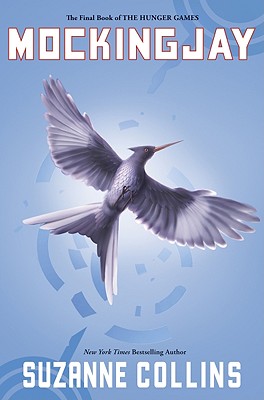
Spoilers annoy me; I avoid them like the plague. Sometimes you get blindsided by them, though. I heard a few of the most gut-wrenching details from Suzanne Collins's final Hunger Games novel, MockingJay before I managed to read it, which sucked out some of the impact the book had on me.
Still, I really enjoyed it. The end fulfilled the potential the series had built up. It had a certain exhausted poignancy about it. The brilliant character development begun in the first two novels carried through to a nice conclusion, the tone of setting changed without losing the tone of the first or second novels, and all in all, Collins rocked it, and like any truly empathetic story, readers either love or hate how it all turned out. Either way, passion is assured, whether they feel the final chapters of worthy their dedication or a betrayal thereof.
If you are one of the few book people not to hear of and/or read this book already, or are a non-book person who reads a book a year, I say you get your hands on the full series, including BUYING Mockingjay. It's earned a re-read, whether you're a "young adult" or not.
Sunday, August 14, 2011
Darkest Mercy

What do you do if you've read a book by an author you genuinely find admirable and a lovely person, but you find the book is only so-so? What do you say if you then are bound to post a review said mediocre offering? I guess--if you're me--you put it off a couple days and then you post the following:
Melissa Marr is an enjoyable writer who (as I've said in a previous review) has a history of hits and misses with me. I hate to say it, but Darkest Mercy is a miss. It isn't good when I repeatedly think to myself, "Yes, mmm-hmm, yeah, already know this. Can we get on with it, already?", only to eventually ask, "Wait, what? That was the big bang? Did I miss it when I blinked a second ago? No?".
At best, Darkest Mercy is an okay book with an awesome cover, some pretty people expressing overwrought angst (yes, there is such a thing), and though it has little to offer by way of an actual story line, alienated-but-romantic teens will slurp it up like an energy drink.
I'm not a fan of energy drinks (hello, yucky flavor and acidic aftertaste!), so this one gets a Borrow from me, which would be a Bypass if it weren't for teen hordes everywhere, of which I am a fan.
Labels:
Amethyst,
Bypass,
contemporary,
paranormal,
romance,
YA
Thursday, August 11, 2011
Anna and the French Kiss
★★★★★
Anna and the French Kiss by Stephanie Perkins
The only word I can think of that captures the feel of Stephanie Perkins' Anna and the French Kiss is delightful. This isn't serious fare, but it's not meant to be. It hits the intended mark perfectly: a light, fun, romantic tale of a teenage girl falling in love. Teen chick lit at its finest.
At about a third of the way through the book, I had to put it aside for a week because the temptation to jump on a plane back to France was too much for my weak francophile heart. (Why did Delta have to send me an email that day announcing a European fare sale?!)
The problem was with Perkins' descriptions of Parisian life; the sights, sounds, smells, and flavors of that glorious city. She captured the ambiance and feel of the city so well, I craved to be back at an outdoor cafe, watching Paris flow by as I nibbled on some quiche Lorraine and perhaps a raspberry macaron or tart au chocolate. The fact that I've only been back from France four months is not lost on me. If Paris weren't so expensive, I might never have come back. I'm exaggerating. Sort of.
Tragically, I didn't find my own Étienne, despite spending two months in France. Hmm. Maybe I should take another look at those airfares. I could do with a hot American/British/French boyfriend right about now.
Saturday, August 6, 2011
Forever
Maggie Stiefvater's Shiver trilogy is one of the few series I've loved, but do not own, and I think it's because it intimidates me. The fluid insertion of poetic imagery (I loved Sam's description of something being as "thin as a lie") speaks of such easy talent that a reader can't help but be wooed. Whether you're attracted to Grace, Sam, Cole, or Isabel, it doesn't matter, because each character has his or her own magnetism--both the kind that draws in, and the kind that repels.
In Forever, Stiefvater ties up all the severed ends cut apart in the second installment, Linger, and rocks out some very nice, natural-feeling bows.
A personal (well, more personal, since I suppose reviews are already seriously personal) note? Even the dedication and acknowledgement rang with gorgeousness and made me cry a little. How is that in any way fair?
I'm on the fence about whether or not it's a Buy or Borrow, but only for myself. For the rest of you, it's not so much a gamble to advise you go ahead and support your local indie bookstore* with some cash on behalf of this book.
*Oh, look, I've even included a handy IndieBound link in the book title.
Labels:
Amethyst,
buy,
contemporary,
library,
magical-realism,
romance,
YA
Tuesday, August 2, 2011
Wither
Lauren DeStefano's debut novel is A Good Book . . . and a Bad One, as well, but before you get all huffy on me, let me explain. Wither has a very odd sort of appeal, but it's strong. While reading it I had visions of The Stanley Hotel from The Shining, because the place narrator Rhine ends up gives me the same sort of grand heebie-jeebies. The fact I felt and saw Rhine's world and the other people who inhabit it so thoroughly is a definite testament to DeStefano's world- and character-building skills The word "thick" also comes to mind like a really great blanket that doesn't let in any light, or cold; the essence of the story world completely encases you, but like any really efficient blanket, it's not entirely comfortable when it's so completely wrapped around you. But Wither *makes* you like it.
A stark story told in a crushingly luxurious setting, Wither is told in first person, allowing the reader to feel all of Rhine's rage, to be right there with her as she develops her particular brand of inner strength, dignity, and determination, her lessons in the differences between true malice, defensive measures, and simple idiocy. And of course, we're very, very close as she quietly learns about falling in love, all the while feeling the constant-though-sometimes-whispered desperation in her every thought and action.
The book does exactly what a well-behaved book should, and with great results, and even though the cover makes it clear it's the first of a trilogy, I felt such satisfaction with the conclusion the book could be a stand-alone and still feel finished. Hence, it is a Good Book (as in, well-behaved, like I said).
But I also said it was a Bad Book, didn't I? Why, when I enjoyed it so much? Well, because it'll make you cry, if you're a writer. Especially if you're a writer. Because no debut author has a right to be this good, and reading Wither is bound to make any other novice/writer-hopeful feel completely inadequate. Bad, Bad Book!
We should make it stand in a corner and think about what it's done. But of course, we'd have to BUY our own copy, so our bookstore, friend, or library wouldn't get very angry if we just kept theirs.
Subscribe to:
Posts (Atom)
